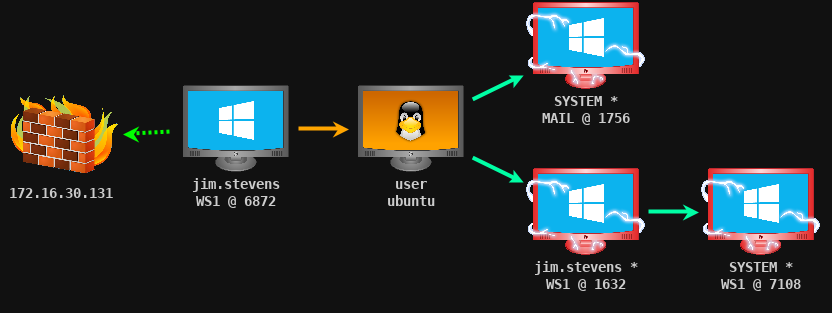Cobalt Strike 3.13 is now available. This release adds a TCP Beacon, process argument spoofing, and extends the Obfuscate and Sleep capability to the SMB and TCP Beacons.
TCP Beacon
Cobalt Strike has long had the ability to pivot over named pipes. Cobalt Strike 3.13 expands this peer-to-peer pivoting model with the TCP Beacon. Now, you can use the bind TCP Beacon as a target for privilege escalation and lateral movement. Like the SMB Beacon, you may disconnect from the TCP Beacon and reconnect to it from another Beacon (in the same Cobalt Strike instance) later.
Pivot Listeners in Cobalt Strike 3.13 are now stageless Reverse TCP Beacon listeners. You may bind a pivot listener from a Beacon session and export a stageless TCP Beacon artifact that connects to it.
Cobalt Strike’s SSH sessions have the ability to control TCP Beacon sessions too! Yes, you can now SSH into a pivot host and use it to resume control of a Beacon mesh.

Pivot Listeners for the Reverse TCP Beacon work from SSH sessions too, but with one caveat: the SSH daemon often restricts reverse port forwards to localhost only. You can change this with the GatewayPorts option in your SSH configuration. For those of you who use dropbear as a *NIX RAT (*cough*I know you’re out there*cough*), this is a nice added pivoting option.
Process Argument Spoofing
One of 2018’s must-watch talks for red teamers is Red Teaming in the EDR Age by Will Burgess. This talk discusses a few techniques for EDR evasion, to include: spoofing parent processes, process argument spoofing, and hiding in-memory. After Will’s talk, I opted to take a look at how to add process argument spoofing as a session prepping option in Cobalt Strike. Here’s what I came up with:
Beacon’s argue command allows you to add a command and a set of fake arguments to an internal list. When Beacon launches one of these commands [an exact match is required], it will launch it with fake arguments in a suspended state. Beacon then updates the process memory with the real arguments and resumes its execution. Tools that subscribe to new process creation events will see the old arguments. The child process will execute with the spoofed arguments. This technique is a way to push back on detections that look for malicious process arguments.
As usual, this isn’t the 100% works everywhere silver bullet for red teaming. This technique relies on reading and writing to memory in a remote process. That’s an indicator of badness.
This technique, as I’ve implemented, works x86 -> x86 and x64 -> x64. Also, this technique requires that the fake arguments are as long as or longer than the real arguments. And, finally, programs that determine process arguments by reading the process PEB will see your real arguments and not our fake arguments.
Still, this technique is another way to mask your activity when you absolutely need to run a process on target to get something done.
In-memory Obfuscation, Continued
I’ve long thought it would be cool to have a payload that could obfuscate itself in memory. This is a great way to push back on point-in-time analysis that look for static strings. Cobalt Strike 3.12 introduced this for the HTTP/HTTPS and DNS Beacon payload.
Cobalt Strike 3.13 extends this feature to the SMB and TCP Beacons too. Now, these Beacons will obfuscate themselves while they wait for a new connection. They will also obfuscate themselves while they wait to read information from their parent Beacon. In effect, these Beacons will spend a lot of time obfuscated.
To enable this behavior, set stage -> sleep_mask option to true in your Malleable C2 profile. For the cleanest in-memory experience, I recommend setting stage -> cleanup to true, and working primarily with stageless payloads.
Token Magic
The execute-assembly, net, portscan, and powerpick commands now use your current token. This release also updates the make_token command. It now stores your provided credentials within Beacon. Beacon will fall back to CreateProcessWithLogonW, using these credentials, when it does not have privileges to run the new process with your newly created token. This makes make_token largely usable from an unprivileged context.
Check out the release notes to see a full list of what’s new in Cobalt Strike 3.13. Licensed users may use the update program to get the latest.